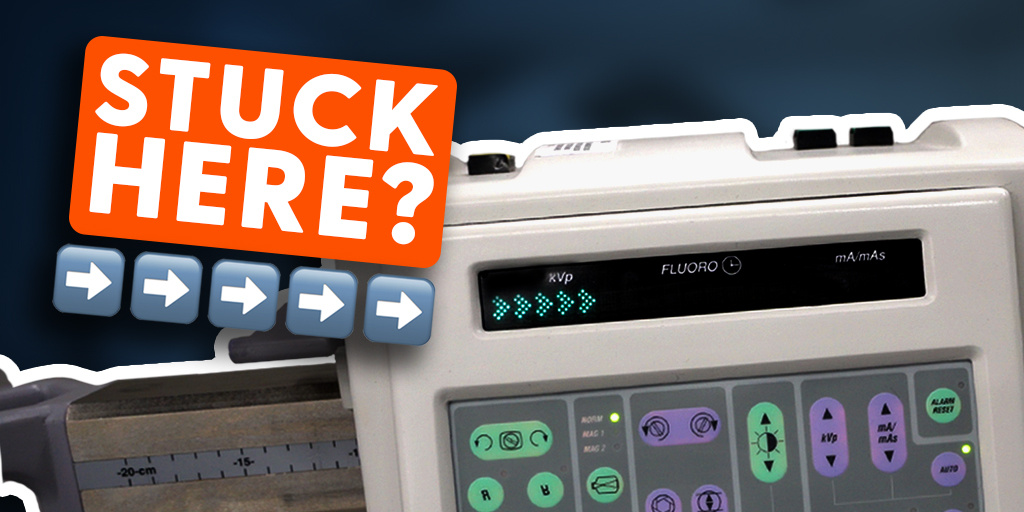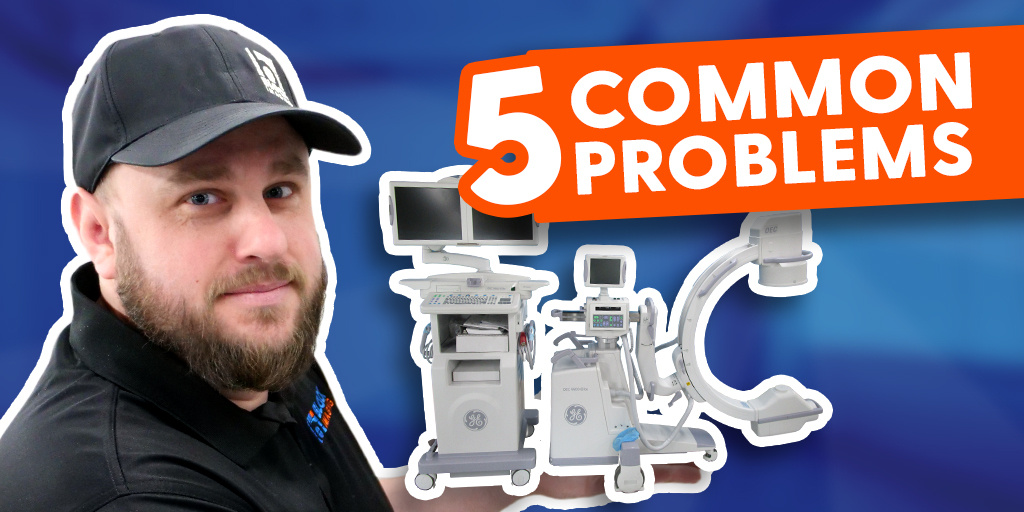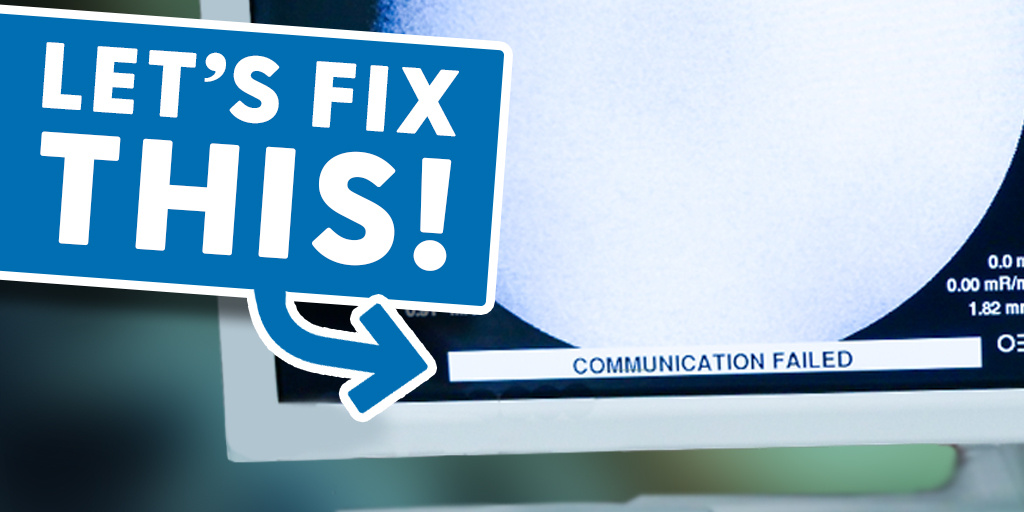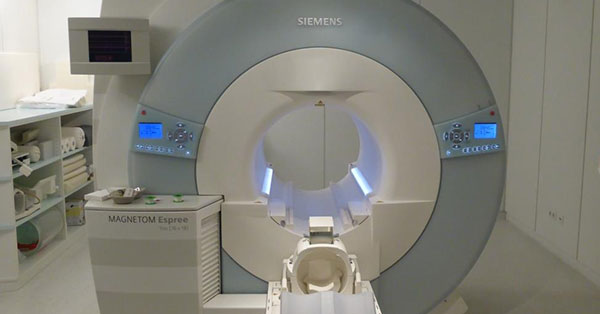
You may have seen pricing as low as $150,000 for some 1.5T MRI machines. But once you factor in the cost of any upgrades, delivery, installation, and first-year service—most facilities don’t get the complete picture or the true cost of buying their machine.
What's important when finding the right tool for you is:
- Knowing everything (not just machine price) that goes into all MRI machine costs
- Recognizing the cost-savings and value a refurbished machine can offer
To help you know what you can expect to pay for a used 1.5T MRI machine from one of the major manufacturers, we'll lay out some important factors to consider. In addition, you’ll get to see our full range of current average prices for some of the most popular manufacturers of the machine.
- How Much Does a 1.5T MRI Machine Cost?
- What Factors Affect MRI Machine Pricing?
- Do You Need More Than a 1.5T MRI Machine?
- Top MRI Machines & Their Pricing
- Final Questions
Note: Block Imaging is dedicated to provide new and refurbished MRI machines and parts in order to solve all the pain points listed above. You can read about it in detail below or reach out to our sales team to learn more about how it can help improve diagnostic imaging.
How Much Does a 1.5T MRI Machine Cost?
The 1.5T scanner is the quintessential MRI machine. It's powerful enough to perform the vast majority of common MRI studies, readily available on the secondary market, and (relatively speaking) moderately priced–which is what you came here for, right?
Several factors impact a final MRI pricing, so it is always best to talk to a sales representative that can give you hard numbers. However, in the event that you need a ballpark estimate, there are a few parameters that can give you clues as to what to expect.
If you’re not able to meet an OEM price point, the refurbished equipment industry is the best alternative. Block Imaging normally inventories machines that have been determined end-of-life by OEM servicers within a year of that designation. Once the machine has been designated as used or refurbished, they are on the refurbished market for anywhere from $150,000 to $500,000.
What Factors Affect MRI Machine Pricing?
Machine availability affects machine pricing the most but other factors like make, model, channels, coils, gradients, software updates can also make a substantive difference in a final price tag. We’re going to take a look at current information on coils and gradients to help pin some numbers down and then leave space for research on servicing, accreditation, site prep, and logistics options.
Coils
Any system you get will most likely come with a set of commonly used coils which will cover your needs for most common scans. If you would like to expand your scanning capabilities, you can invest in additional coils.
The 4 to 8-channel coils are easy to find and less expensive. Buying them new will cost anywhere from $12,000 to $80,000, but buying them refurbished will only cost an average of $8,000 to $25,000, or $3,000 to $5,000 with an exchange.
16 to 32-channel coils cost between $40,000 and $120,000 depending on size and application. They are not always easy to find on the secondary market, but when they are available, a used parts vendor can save you an average of 40 or 50% off the price of a new one.
A good rule of thumb is to remember that the higher the channel number, the shorter the acquisition time is. Below you’ll find current average pricing for a variety of MRI coils, both new and refurbished. Already know which coils you need? Click here to request a quote!
Magnet Type
These days, there are really only two things to consider with regard to magnet type:
- Is it zero boil-off? Zero boil off magnets have coldheads that “recondense” the liquid helium as it tries to boil-off and are therefore highly efficient with helium consumption. Therefore, these magnets are much less expensive to service than magnets without this technology. You will of course pay much less for a magnet that is not zero boil-off but be sure to consider the higher costs to maintain them
- How wide is the bore? 60cm was the standard for many years, but these days, and really since around 2010, 70cm bore magnets have become much more popular. Heavier patients, and those with claustrophobia are ideally suited to this larger bore size. It does make a difference in price though. MRI’s with 70cm bore magnets will be at a minimum 25% more expensive then the 60cm bore counterparts
Number of RF channels
RF channels are directly related to image clarity and acquisition speed. They range from 4 on some older systems all the way up to 128 on some of the newer systems on the secondary market. The average number on most systems on the secondary market (at least at time of this writing) is 16-18. As you might expect, the higher the channel count, the more expensive the system will be.
Gradient type
The gradient package of an MRI scanner will significantly impact its image quality and should be top-of-mind as you consider your options. Gradients are three smaller magnets within a large metal coil alongside the primary magnet, which allows the magnetic field to be altered in very precise ways to capture specific parts of the body (slices). Each OEM names their gradient package something different (i.e., “Twinspeed,” “XGV,” “Ultra,” “Master,” etc.). They are all names for the same component type, but not all gradient packages are created equal – so be on the lookout.
Again, a good rule of thumb is to remember that the higher the amplitude and slew rate, the higher the cost of the MRI system. Although you’ll be getting more anatomical slices and clearer images, you’ll have to first determine if the additional costs can be justified by your patient volume and the type of studies you perform. Any reputable dealer will be able to consult with you to help you determine what is best for your practice – just ask!
Other Factors to Consider
Service, accreditation, site prep, and logistics are all necessary components that, while they may not necessarily affect which system you choose, ultimately affect the final price point. Making sure time, resources, and funds are budgeted towards these needs will help the overall process run smoothly. For more details on these factors, check out our MRI Machine Buyers Guide.
Do You Need More Than a 1.5T MRI Machine?
One of the biggest selling points for 3T is its image noise reduction, which is especially important for clear images of small or intricate studies like vascular, brain, or prostate exams.
If you’re doing studies that involve very minute detail, or if your market area, volume, or referring doctors are leaning you toward 3T, then be sure to plan ahead. 3T is costly and the price tag could easily be double what you’d pay for a 1.5T. Additionally, 3T availability is not as common so being prepared for a longer lead time is important.
Another question to ask is, “can my room accommodate a 3T MRI?” Typically, the active shielding on these magnets is good enough to contain the five-gauss line in a moderately sized room, but some testing is in order to make sure. Keep in mind: the strength of magnets used to pick up cars in junkyards is about the same as a 1.5T MRI. 3Ts have twice as much magnetic field. Be sure your safety measures are sufficient!
Top 1.5T MRI Machines & Their Pricing
(Not including installation and service costs)
|
$150,000 or less |
$150,000 - $300,000 |
|
Philips 1.5T Achieva D-stream Siemens 1.5T Avanto |
|
|
$250,000 - $400,000 |
$400,000+ |
|
Siemens 1.5T Avanto FIT Siemens 1.5T Sempra |
GE 1.5T HDXT Mobile Siemens 1.5T Espree Mobile |
Final Questions
When you’re evaluating whether or not to buy a 1.5 MRI Machine, these questions can help you ascertain the pros and cons.
- What will my MRI machine be used for?
- Am I set on buying refurbished?
- Is price a deciding factor in my search or are the cumulative components, like coils or upgrades, the selling point for me?
- Have I considered servicing, accreditation, site prep, and other logistics?
- Do I have an OEM already in mind?
- Do I need more than a 1.5T MRI Machine? If so, how much time do I have to locate what I need and can my room accommodate a 3T MRI?
FREE Project Planning Checklist
Prepare for the major steps of bringing in a new MRI machine!
A step-by-step guide for successfully bringing a new MRI into your facility.
Save yourself months of MRI project delays, headaches and surprises by knowing exactly what to prepare for.
Be your facility's MRI project planning superhero!
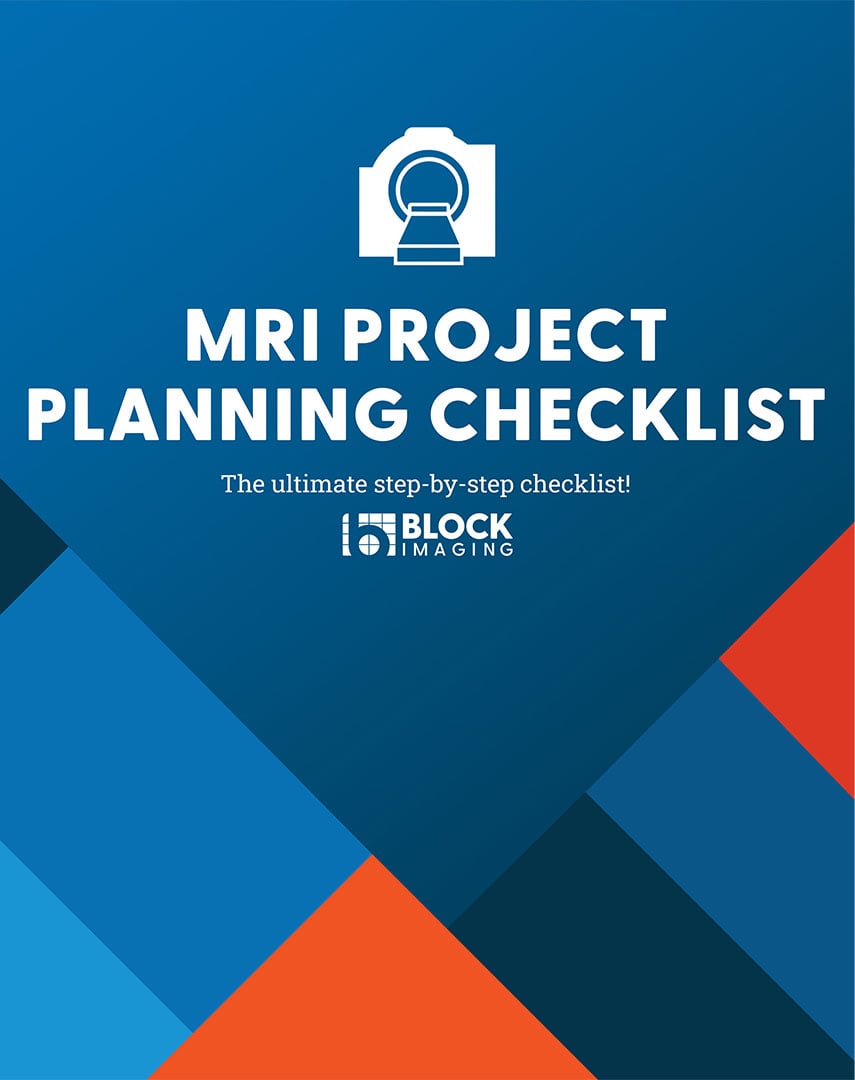
Conclusion
Finding a system that is tailored to your needs with the exact type of components, service possibilities, accreditation, site prep, and logistics can set you up for success. Given the wide variety among 1.5T MRI machines and the availability of quality used systems, there is equipment that can accommodate just about any budget. If you could use a guide in navigating all of these options, don’t hesitate to reach out to us! Our team is experienced in creating quality placements between equipment and buyers that create a longstanding relationship with our customers.

Steve Rentz
Steve Rentz is the Product Manager for MRI Scanners at Block Imaging. Steve's goal is to earn each customer's trust and business by specifically addressing the needs of their unique project. When Steve is not helping customers with their MRI needs, he enjoys running, swimming, and woodworking.



